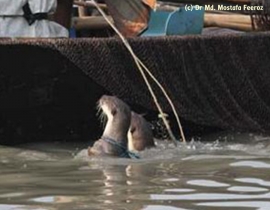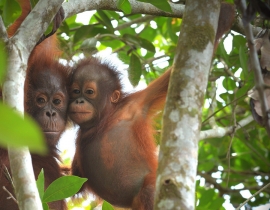Posted February 1, 2018 in All
Colchester Zoo’s Action for the Wild began supporting the Red Panda Network forest guardian scheme in 2014, joining forces with the European Association of Zoos and Aquaria (EAZA) European Endangered Species Breeding Programme to help fund Forest Guardians to work within and protect the red panda project area. In 2017, the Red Panda Network sponsored 72 Forest Guardians, and of these, EAZA funding is supporting 8 of them.
Expanding the Forest Guardian Team and Anti-Poaching Network
The Forest Guardian team now has 72 members and the community-based red panda monitoring and outreach programmes have expanded to new locations in Eastern Nepal. Members receive capacity building opportunities including red panda monitoring, anti-poaching investigation and nature guide trainings. Forest Guardians also play a key role in an anti-poaching network which has patrolled and investigated 23 Community Forests in the Panchthar-Ilam-Taplejung (PIT) corridor. They locate and dismantle snares and report poachers to local enforcement agencies.
Restoring Habitat and Improving Local Livelihoods
In 2017, 58 local families received 4,850 native seedlings which can be sold and provide alternative income generation opportunities. Over 4,000 seedlings were planted in Community Forests of Taplejung district. These young plants will help restore degraded forest identified as core red panda habitat. Three locally managed nurseries were also established containing fodder and red panda food species.
Threat to Red Pandas – Unsustainable Herding Practices
Livestock herding is one of the major drivers of red panda habitat loss and degradation in Eastern Nepal. Livestock not only degrade habitat quality as they graze in the forest but directly compete with red pandas as they eat bamboo and other red panda food species. In 2017, 57 livestock herders and Community Forest User Group (CFUG) members attended two red panda conservation workshops. Sustainable herding practices are also supported by providing fodder seedlings to local herders. This will encourage stall feeding of livestock and reduce the need for forest grazing. Herders in Eastern Nepal have received 1,600 seedlings.



